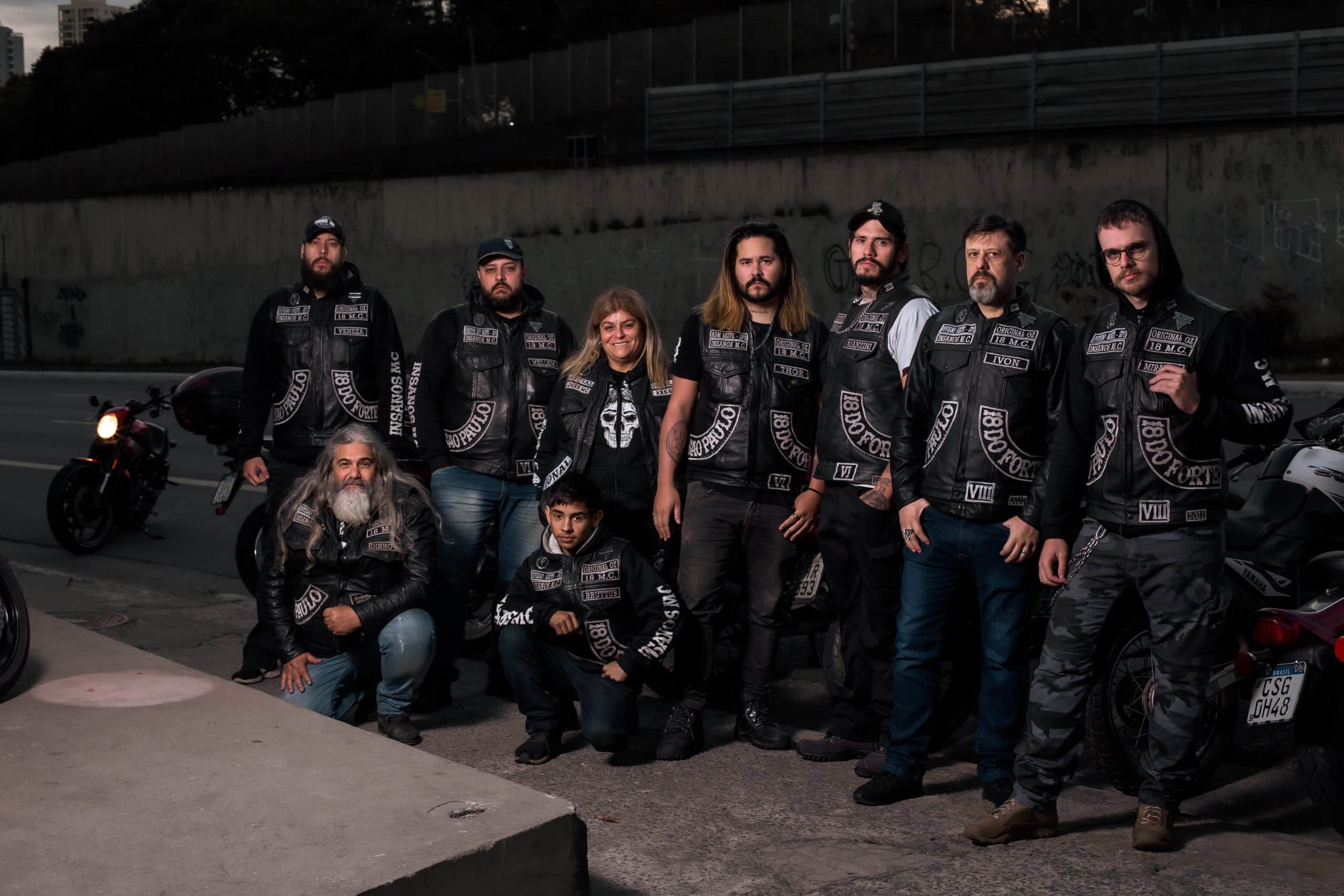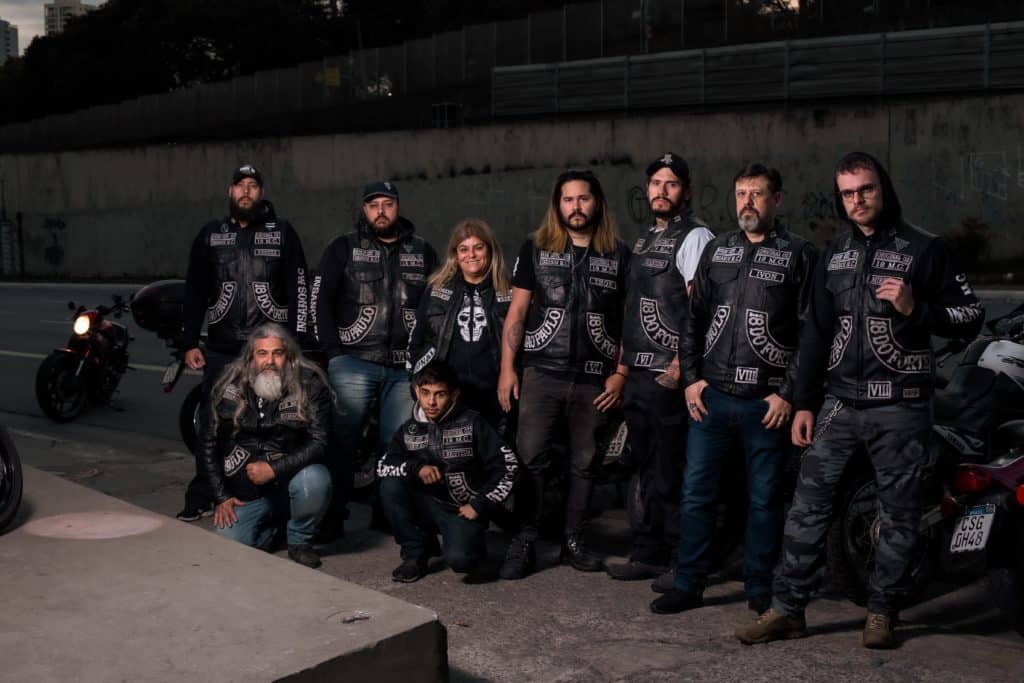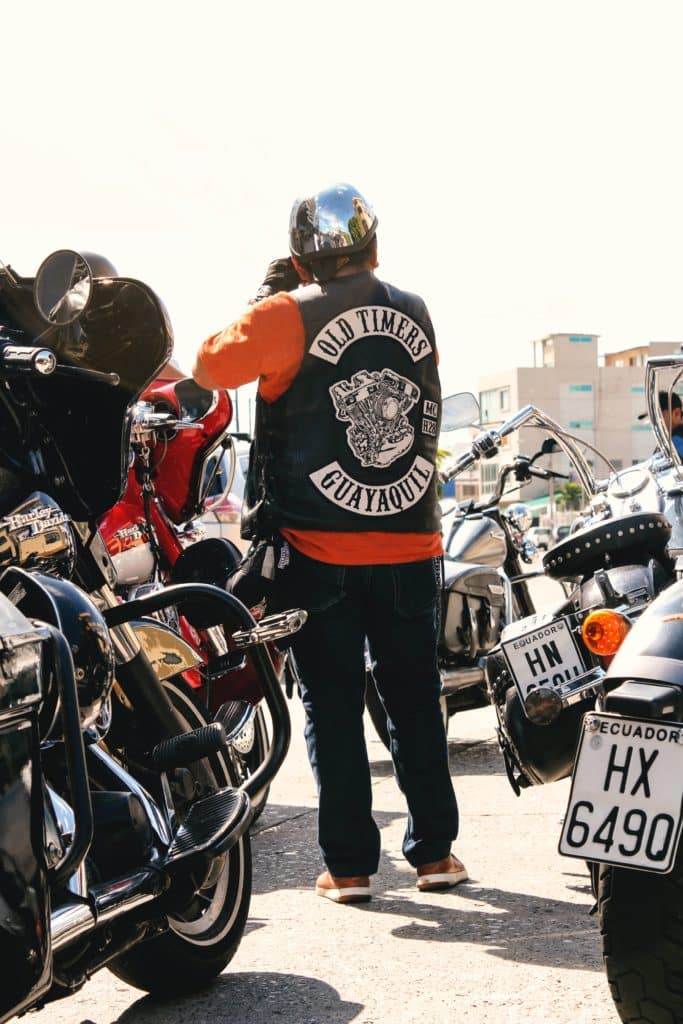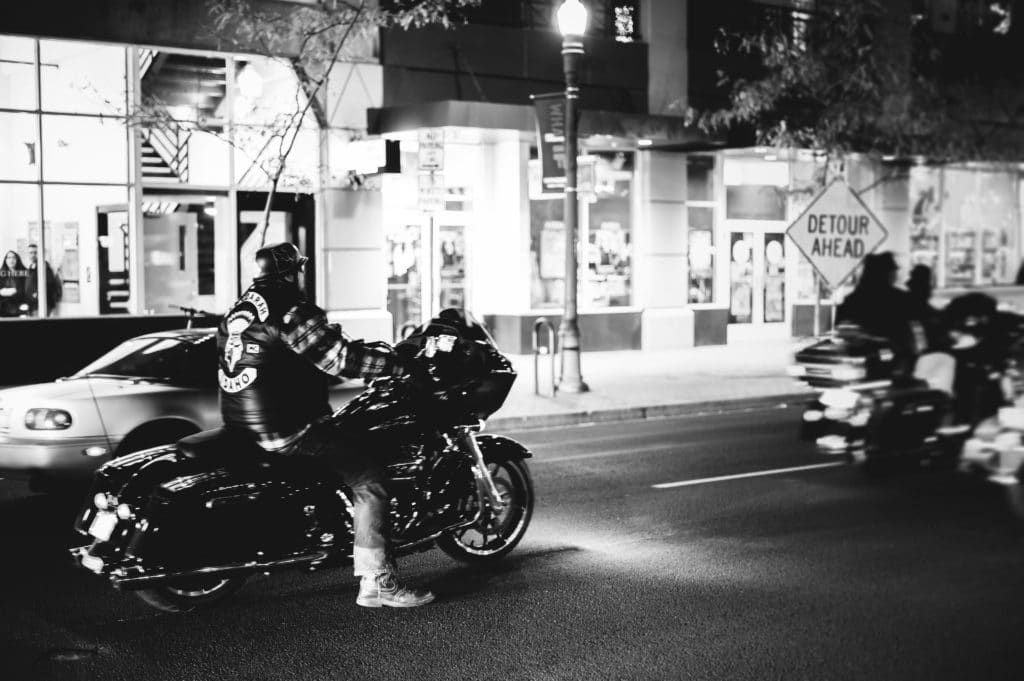Introduction
In this article, we will delve into the rich history and cultural significance of motorcycle clubs in American society. These clubs have played a vital role in shaping American culture, embodying adventure, rebellion, and the power of brotherhood. From their early days as social clubs to the emergence of outlaw motorcycle clubs, motorcycle clubs have created tight-knit communities that continue to shape the fabric of motorcycle club culture in the United States.
1. Motorcycle clubs in American culture
Motorcycle clubs hold a significant place in American culture. They are not just groups of individuals with a common interest in motorcycles; they represent a lifestyle and a sense of belonging. Motorcycle clubs bring people together from all walks of life, united by their passion for riding and the camaraderie that comes with it. These clubs have become a part of American folklore and have been depicted in movies, books, and popular media, further solidifying their place in the cultural landscape.
2. The significance of motorcycle clubs in embodying adventure, rebellion, and brotherhood
Motorcycle clubs embody the spirit of adventure, rebellion, and brotherhood. Riding a motorcycle symbolizes freedom and a break from the constraints of everyday life. This sense of adventure is deeply embedded in the motorcycle club culture, where members embark on road trips, explore new territories, and embrace the thrill of speed and open roads.
Rebellion is another significant aspect of motorcycle club culture. For many, joining a motorcycle club represents a rejection of societal norms and expectations. It is a way to rebel against conformity and embrace an alternative lifestyle. Outlaw motorcycle clubs, in particular, have been associated with a rebellious and non-conformist spirit, challenging the status quo.
Finally, brotherhood is at the core of motorcycle club culture. Members of these clubs form strong bonds and create a sense of family. They rely on each other for support, protection, and friendship. The power of brotherhood is evident in the loyalty and camaraderie displayed by motorcycle club members.
Overall, motorcycle clubs hold a special place in American culture, representing adventure, rebellion, and the power of brotherhood. Through their rich history and cultural significance, they continue to shape the motorcycle club culture and leave an indelible mark on American society.
The Origins of Motorcycle Clubs
In this article, we will delve into the rich history and cultural significance of motorcycle clubs in American society. These clubs have played a vital role in shaping American culture, embodying adventure, rebellion, and the power of brotherhood. From their early days as social clubs to the emergence of outlaw motorcycle clubs, motorcycle clubs have created tight-knit communities that continue to shape the fabric of motorcycle club culture in the United States.
1. Early days as social clubs
Motorcycle clubs hold a significant place in American culture. They are not just groups of individuals with a common interest in motorcycles; they represent a lifestyle and a sense of belonging. Motorcycle clubs bring people together from all walks of life, united by their passion for riding and the camaraderie that comes with it. These clubs have become a part of American folklore and have been depicted in movies, books, and popular media, further solidifying their place in the cultural landscape.
2. Evolution into outlaw motorcycle clubs
As motorcycle clubs gained popularity, a new breed emerged in the 1960s – the outlaw motorcycle clubs. These clubs introduced an aura of controversy and mystique, boldly carving their path with defiance and an independent spirit. Outlaw motorcycle clubs have had a significant impact on motorcycle club culture, acknowledging the diversity of perspectives surrounding these groups. While these clubs may sometimes be associated with criminal activities, it is important to recognize the countless contributions they have made to the motorcycle club culture. They remain a source of fascination and a symbol of rebellion and non-conformity.
Overall, motorcycle clubs hold a special place in American culture, representing adventure, rebellion, and the power of brotherhood. Through their rich history and cultural significance, they continue to shape the motorcycle club culture and leave an indelible mark on American society. The allure and controversy surrounding motorcycle clubs, particularly the outlaw motorcycle clubs, have made them enduring symbols of freedom, rebellion, and camaraderie.
The Brotherhood of Motorcycle Clubs
In this article, we delve into the rich history and significance of motorcycle clubs in American society. Motorcycle clubs have played a vital role in shaping American culture, embodying adventure, rebellion, and the power of brotherhood.
1. The tight-knit community within motorcycle clubs
Motorcycle clubs hold a significant place in American culture, serving as more than just groups of individuals with a common interest in motorcycles. They represent a lifestyle and a sense of belonging. These clubs bring people together from all walks of life, united by their passion for riding and the camaraderie that comes with it. They create strong bonds among members and foster a tight-knit community, providing a support system where individuals can find a sense of identity and acceptance.
2. Celebrating the unbreakable bonds and enduring traditions
Perhaps the most profound aspect of motorcycle clubs is the sense of camaraderie that develops within the brotherhood. Riding motorcycles inherently creates a bond among riders as they share a common passion and understanding of the risks and joys associated with the lifestyle. Motorcycle clubs celebrate this bond by upholding enduring traditions and rituals, passed down through generations, that symbolize unity and loyalty. These traditions strengthen the sense of belonging and create a deep connection among club members.
Overall, motorcycle clubs continue to shape the fabric of motorcycle club culture in the United States. They represent adventure, rebellion, and the power of brotherhood. These clubs have evolved from their early days as social clubs to the emergence of outlaw motorcycle clubs, but the sense of community, camaraderie, and enduring traditions remain at the core. Motorcycle clubs offer individuals a way to break free from the constraints of conventional society and embrace a more authentic and rebellious self. They continue to hold an indelible mark on American society, representing a unique subculture that thrives on the passion for motorcycles and the bonds formed among riders.
Motorcycle Club Culture
The rich history and significance of motorcycle clubs in American society highlight their pivotal role in shaping the fabric of motorcycle club culture. From embodying adventure and rebellion to celebrating unbreakable bonds and enduring traditions, motorcycle clubs have created a strong sense of community among riders.
1. The sense of community in motorcycle culture
Motorcycle clubs go beyond being mere groups of individuals with a shared interest in motorcycles. They represent a lifestyle and a sense of belonging, bringing together people from diverse backgrounds who are united by their love for riding. Within these clubs, camaraderie is forged, forming a tight-knit community where members find support, identity, and acceptance.
2. Love of freedom and rebellious attitude
At the heart of motorcycle culture is a deep-seated love of freedom and a rebellious attitude. Riding motorcycles inherently embodies the spirit of freedom, enabling riders to break free from the confines of conventional society. It allows individuals to embrace their authentic selves, challenging societal norms and embracing a lifestyle that defies conformity.
As motorcycle clubs have evolved over time, they have come to represent not only a means of transportation but a subculture that thrives on the passion for motorcycles and the bonds formed among riders. From the early days as social clubs to the emergence of outlaw motorcycle clubs, the sense of community, camaraderie, and enduring traditions remain at the core of motorcycle club culture. Motorcycle clubs continue to leave an indelible mark on American society, shaping a unique subculture that embraces adventure, rebellion, and the power of brotherhood.
Becoming a Member of a Motorcycle Club
Joining a motorcycle club is a significant step for those interested in immersing themselves in the motorcycle club culture. It offers the opportunity to connect with like-minded individuals, form lasting friendships, and participate in club activities and events. To become a member of a motorcycle club, there are certain requirements and initiation processes that prospective members need to go through. Moreover, commitment and loyalty play a crucial role in maintaining a strong bond among club members.
1. Requirements and initiation processes
Each motorcycle club may have its own set of requirements for individuals seeking membership. These requirements often include owning a motorcycle and holding a valid motorcycle license, as riding is an integral part of being a club member. Some clubs may also require potential members to have a certain level of riding experience. Additionally, there may be age restrictions or specific character traits that the club looks for in its members.
Once the requirements are met, the initiation process begins. This process typically involves participating in a series of events or challenges designed to assess an individual’s commitment, compatibility, and dedication to the club. It may include riding alongside current club members, attending club meetings and functions, and demonstrating respect for club traditions and values. The initiation process serves as a way to ensure that new members align with the club’s principles and enhance the camaraderie within the group.
2. The importance of commitment and loyalty
Commitment and loyalty are vital aspects of being a member of a motorcycle club. Club members are expected to uphold the values and rules of the club and represent it with dignity. This includes attending regular meetings, participating in club activities and events, and showing respect towards fellow members and the club’s colors. Loyalty to the club and its members is paramount, as it strengthens the bond between individuals and fosters a sense of unity and support.
Membership in a motorcycle club is not just about wearing a patch or being part of a group. It is about embracing the motorcycle club culture, being dedicated to the club’s ideals, and contributing to the vibrant community of riders. Becoming a member of a motorcycle club offers the opportunity to forge lifelong friendships, share experiences, and be part of a brotherhood that celebrates the love of motorcycles and the adventurous spirit that comes with it. Iconic Motorcycle Clubs
1. Outlaw motorcycle clubs and their influence
Outlaw motorcycle clubs, often known as “one percenters,” have played a significant role in shaping motorcycle club culture. These clubs gained notoriety in the 1940s and 1950s due to their rebellious behavior and involvement in criminal activities. The term “one-percenter” originated from a statement made by the American Motorcycle Association (AMA), claiming that 99% of motorcyclists were law-abiding citizens. Outlaw motorcycle clubs defiantly embraced the label, further solidifying their rebellious image.
Outlaw motorcycle clubs follow their own set of rules and reject the mainstream societal norms. They have distinctive club colors, patches, and logos that represent their club’s identity and values. Some of the notable outlaw motorcycle clubs include the Hells Angels, the Bandidos, and the Outlaws.
These clubs have had a significant influence on motorcycle club culture, both positive and negative. While some engage in criminal activities, others focus on promoting brotherhood, camaraderie, and a love for motorcycles. Outlaw motorcycle clubs have become synonymous with the freedom, adventure, and non-conformity associated with motorcycle culture.
2. Notable motorcycle clubs in American history
Throughout American history, several motorcycle clubs have left a lasting impact on the motorcycle culture. These clubs, known for their rich traditions and contributions to the community, have become legends in their own right. Here are a few notable motorcycle clubs in American history:
- The Buffalo Soldiers Motorcycle Club: Founded in 1993, the Buffalo Soldiers Motorcycle Club is dedicated to preserving the history and traditions of African-American military personnel. The club honors the legacy of the Buffalo Soldiers, the first African-American cavalrymen.
- The Iron Order Motorcycle Club: Established in 2004, the Iron Order MC has gained prominence for its commitment to law-abiding motorcycling and community service. The club focuses on promoting family values, loyalty, and a deep appreciation for motorcycles.
- The Boozefighters Motorcycle Club: Formed in 1946, the Boozefighters MC gained fame through their involvement in the seminal biker film, “The Wild One.” This club emphasizes brotherhood, patriotism, and supporting charitable causes.
These are just a few examples of the countless motorcycle clubs that have contributed to the rich tapestry of motorcycle culture in America. Each club has its own unique history, values, and traditions that have helped shape the interconnected brotherhood of riders. Through their shared love of motorcycles, these clubs continue to embody the spirit of freedom, camaraderie, and adventure that defines motorcycle club culture.
Motorcycle Club Activities and Events
1. Group rides and rallies
Motorcycle clubs organize group rides and rallies as a way to bring members together and enjoy the open road. These rides can range from short trips to long-distance adventures, allowing club members to bond over their shared love of motorcycles. Group rides often follow scenic routes and may include stops at notable landmarks or attractions.
Rallies, on the other hand, are larger events that attract motorcycle enthusiasts from different clubs and even non-club members. These events usually span multiple days and feature various activities such as live music, bike shows, vendors, and camping. Rallies provide an opportunity for riders to socialize, showcase their motorcycles, and immerse themselves in the motorcycle culture.
2. Charity events and community involvement
Many motorcycle clubs prioritize giving back to their communities and engage in charity events and community service. These events can include fundraisers, toy drives, blood drives, or volunteering at local organizations. Through their involvement in charitable activities, motorcycle clubs aim to make a positive impact and contribute to the well-being of their communities.
Participating in charity events not only allows clubs to support causes they believe in but also helps challenge negative stereotypes associated with motorcycle clubs. By demonstrating their commitment to community service, clubs help foster a positive image of motorcyclists and promote a sense of camaraderie within their communities.
Overall, motorcycle club activities and events provide avenues for members to connect, share experiences, and contribute to their communities. Whether it’s through exhilarating group rides or meaningful charitable endeavors, these activities strengthen the bonds between club members and further enrich the vibrant world of motorcycle club culture.
Controversies and Misconceptions
1. Addressing misconceptions about motorcycle clubs
Many Americans have a misunderstanding of motorcycle clubs, largely due to misrepresentation in the media. It is important to address these misconceptions and shed light on the reality of motorcycle club culture:
• Philanthropy: One of the crucial distinctions between outlaw motorcycle clubs and gangs is their involvement in philanthropic activities. Motorcycle clubs often prioritize giving back to their communities through charity events, fundraisers, and community service. These actions demonstrate their commitment to making a positive impact and challenging negative stereotypes associated with motorcycle clubs.
• Sense of community: Motorcycle clubs provide a sense of camaraderie and belonging for their members. Through group rides, rallies, and other social events, club members connect with each other and share their love for motorcycles. These activities create strong bonds and promote a supportive community within the motorcycle club culture.
2. Legal issues and controversies surrounding some motorcycle clubs
It is important to acknowledge that while the majority of motorcycle clubs operate lawfully and promote positive values, there have been instances where certain clubs have faced legal issues and controversies:
• Outlaw motorcycle clubs: Some motorcycle clubs have been labeled as outlaw clubs due to their involvement in criminal activities. However, it is important to note that these clubs do not represent the entire motorcycle club community. Most motorcycle clubs adhere to the law and denounce criminal behavior.
• Association with organized crime: The media often portrays motorcycle clubs as associated with organized crime groups. While there have been instances of a few clubs having connections with criminal organizations, it is essential to recognize that this does not reflect the entire motorcycle club community. The vast majority of motorcycle club members are law-abiding citizens who simply share a passion for motorcycles.
In conclusion, it is crucial to separate fact from fiction when it comes to motorcycle clubs. While there may be instances of legal issues and controversies surrounding some clubs, it is important to remember that the majority of motorcycle clubs prioritize community involvement, philanthropy, and creating a sense of belonging for their members. By understanding the realities of motorcycle club culture, we can dispel misconceptions and foster a more accurate perception of these communities.
Conclusion
1. The enduring impact of motorcycle clubs on American culture
Motorcycle clubs have made a lasting impact on American culture, contributing to a subculture that embraces freedom and rebellion. Despite controversies and misconceptions surrounding some clubs, the majority prioritize philanthropy and community involvement. Through charity events and community service, motorcycle clubs challenge negative stereotypes associated with their culture. Additionally, their sense of camaraderie and belonging fosters a close-knit community among members. Motorcycle clubs have created unbreakable bonds and enduring traditions that have shaped American society.
2. Reflecting on the rich history and evolving future of motorcycle club culture
The rich history of motorcycle club culture traces back several decades, characterized by a love for motorcycles and a rebellious attitude. While there have been legal issues and controversies surrounding some clubs, it is essential to separate the actions of a few from the broader motorcycle club community. The future of motorcycle club culture continues to evolve, with a focus on promoting positive values and debunking negative stereotypes. By shedding light on their philanthropic activities and sense of community, motorcycle clubs aim to create a more accurate perception of their culture.
By understanding the realities of motorcycle club culture, we can appreciate the contributions they have made to American society and dispel misconceptions associated with their community. Motorcycle clubs will continue to shape American culture through their enduring bonds and commitment to freedom. Whether through charity events or group rides, they will continue to celebrate their love for motorcycles and the strong sense of community that comes with it.
Frequently Asked Questions: Understanding the Culture and Community of Motorcycle Clubs
Q: What are Motorcycle Clubs?
A: Motorcycle clubs, also known as MCs or simply clubs, are groups of individuals who share a common interest in motorcycles. These clubs often have a distinct culture and set of values that foster a sense of community and brotherhood among its members.
Q: What is the purpose of Motorcycle Clubs?
A: The purpose of motorcycle clubs can vary depending on the specific club. Some clubs focus on recreational riding and organizing group rides, while others may have a more intense focus on competitive racing. Additionally, many clubs are involved in charity work and community outreach efforts.
Q: What is the significance of the patch worn by club members?
A: The patch worn by club members is often referred to as a “colors” or “back patch.” It typically features the club’s logo, name, and other symbols that represent its identity. The patch holds great significance and is a symbol of honor and loyalty earned by members.
Q: Are all Motorcycle Clubs involved in illegal activities?
A: No, it is incorrect to assume that all motorcycle clubs are involved in illegal activities. While some clubs may have gained a notorious reputation in the past, the majority of motorcycle clubs are law-abiding organizations that promote camaraderie, a love for motorcycles, and community involvement.
Q: How does one become a member of a Motorcycle Club?
A: The process of becoming a member of a motorcycle club varies from club to club. Typically, one must express interest, spend time riding with the club, and get to know the members. After a period of evaluation and earning the trust of the existing members, an invitation to join may be extended.
Q: What are the club rules and protocols?
A: Club rules and protocols are established to maintain order and unity within the club. These rules can differ among clubs but often include expectations of loyalty, respect, and following club traditions. It’s important for prospective members to fully understand and respect the rules and protocols of a club they wish to join.
Q: What is the brotherhood/sisterhood aspect of Motorcycle Clubs?
A: The brotherhood or sisterhood aspect of motorcycle clubs refers to the strong bond and sense of camaraderie that develops among club members. This bond is often likened to a family, where members support and look out for one another both on and off the road.
Q: Can women become members of Motorcycle Clubs?
A: Absolutely! Women can and do become members of motorcycle clubs. In recent years, there has been a significant increase in the number of women joining motorcycle clubs, and they are making a powerful impact within the motorcycle community.
Q: Are there different types of Motorcycle Clubs?
A: Yes, there are various types of motorcycle clubs. While some clubs are open to various types and brands of motorcycles, others may be more exclusive and only admit members who ride specific types or brands. Some clubs are focused on long-distance touring, while others may be devoted to a particular motorcycle brand.
Q: How can one find a Motorcycle Club to join?
A: Prospective members can find motorcycle clubs to join by attending local motorcycle events, rallies, or races. Additionally, reaching out to local motorcycle enthusiasts or researching online forums and social media groups dedicated to motorcycles can help in finding clubs in your area.
Q: Can you leave a Motorcycle Club once you become a member?
A: Yes, it is possible to leave a motorcycle club. However, it is crucial to understand that leaving a club is not as simple as walking away. Depending on the club, there may be certain protocols or procedures to follow, and it is important to handle the departure respectfully and within the bounds of club rules.
Q: What does it mean when a motorcycle club is branded as an “outlaw” club?
A: An “outlaw” motorcycle club is a term used to describe certain motorcycle clubs whose members do not necessarily conform to the societal norms and laws. However, it’s important to note that not all motorcycle clubs with a reputation for being “outlaw” are involved in illegal activities. The term is often misunderstood and carries different meanings within the motorcycle community.
Remember, Motorcycle Clubs can provide a fulfilling sense of community, shared passion for motorcycles, and opportunities for personal growth. It’s always recommended to thoroughly research and understand the values and beliefs associated with a club before considering membership.

David Williams is an author with a passion for motorcycles and all things related to the world of two-wheeled vehicles. His expertise is evident on his website, The Moto Expert, where he shares his knowledge and insights with fellow enthusiasts. Follow him on social media to stay up-to-date on the latest motorcycle news, reviews, and trends. Whether you’re a seasoned rider or just starting out, David’s content is sure to inform and entertain. Join his community and become a part of the conversation today.




